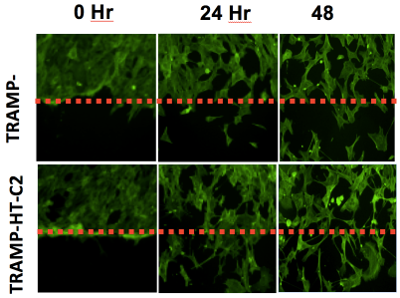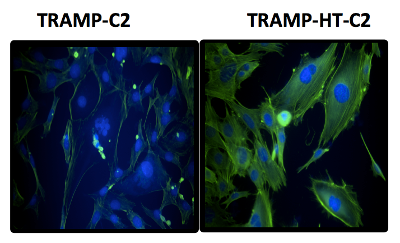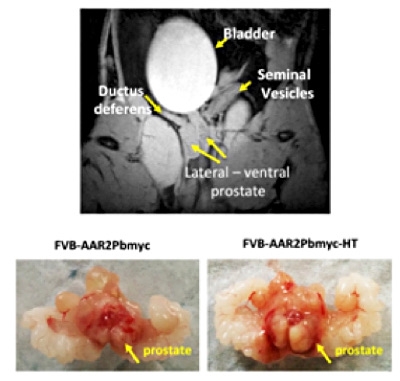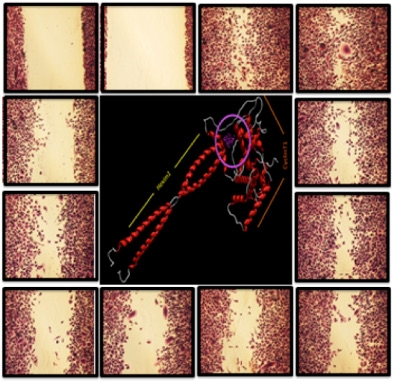- Associate Professor
- Biological Sciences
- SUNY College at Old Westbury
- Natural Sciences Building S-216
- Email: mascarenom@oldwestbury.edu
- Phone: (516) 876-2737
- Director of Institute of Cancer Research and Education
- SUNY College at Old Westbury
Research Interests
- Understanding cancer biology
- Discovering cancer treatments
- Animal models of cancer research
- Diagnostic Markers for cancer
Dr. Dhar-Mascareno is a trained molecular oncologist at the Memorial Sloan Kettering Center where she studied the human GM-CSF receptor and identified novel components in the GM-CSF receptor in cancer cell lines. Additionally she has studied the role of reactive oxygen species and cytokine signaling in angiogenesis, a key step of tumor growth. Over the past few years her laboratory has been studying prostate cancer and the mechanisms involved in metastasis. Her interest is to identify specific molecular targets for the development of anti-cancer therapeutics. Her laboratory has identified Hexim1, a novel biomarker for advanced stages of prostate cancer. Based on existing transgenic models of prostate cancer, Dr. Dhar-Mascareno has genetically modified the expression of Hexim1 gene to generate more aggressive and invasive prostate cancer models. Her research is currently funded by an R15 Grant for NCI/ NIH and Faculty Development grants from The College at Old Westbury.
Student Training Opportunities
Students in the Mascareno lab are directly involved in many aspects of scientific experiments. Our goal is to provide a better understanding of how science is conducted and we expect the students to fully participate in experiments and data preparation. These include cloning of genes in plasmid vectors, mammalian cell culture maintenance, transfection of plasmids in mammalian cells, immunoblot analysis, fluorescent microscopy and gene expression microarray analyses. Students will also learn the application of bioinformatics tools in biomedical research. Students will learn safe practices, how to perform a variety of laboratory techniques, how to record scientific data and present our experimental data in various forums. At the end of the training the student will be able to show results in a poster, give oral presentations and discuss their research with the scientific community on college, state and nationwide conferences.
Current Lab Members
- Susan Ramirez (Research Assistant)
- Karan Kumar (Undergraduate Researcher)
- Naadia Hameed (Undergraduate Researcher)
Lab Alumni
| Name | Time in Lab | Current Position |
|---|---|---|
| Amandeep Singh | Spring 2008 | Albert Einstein School of Medicine, NY |
| Sharita Lowe | Spring 2008 | Resident Nurse at North Shore Hospital |
| Winchester Stuart | Spring 2009 | Dental School University of Buffalo |
| Ingrid Perez | Spring 2009 | |
| Diana Pedroz | 2008-2010 | |
| Onaje Rickerby | Fall 2009 | Dental School UMDNJ |
| Shabih Quereshi | Fall 2010 | |
| Bilal Butt | 2010- 2011 | SUNY, Syracuse Medical School |
| Ivan Belishov | 2010-2011 | Research Scientist, University of Rochester, NY |
| Nally Calzado | 2008-2010 | SUNY, Stony Brook Medical School |
| Tataiana Jean Jacques | Fall 2012 | |
| Sameha Tariq | 2013-2015 | |
| Susan Ramirez | 2013-2014 | Research Assistant, SUNY College at Old Westbury |
| Daniel Park | Summer 2014 | |
| Yuvraj Singh | 2013-2014 | Lake Erie College of Osteopathic Medicine |
| Deodate Davis | 2013-2015 | |
| Udayani Rabindranath | ||
| Lesley Benavides |
Selected Publications
- Mascareno EJ, Belashov I, Siddiqui MA, Liu F, Dhar-Mascareno M. (2012): Hexim-1 modulates androgen receptor and the TGF-β signaling during the progression of prostate cancer. Prostate 2012 Jun 15; 72(9):1035-44.
- Dhar-Mascareno, M., Mascareno, E. and Golde, D. W. (2009) Early signaling By VEGF and PlGF in Human Bone Marrow Derived Endothelial Cells is mediated by superoxide. J Vasc Res. 46(6):601-8.
- Dhar-Mascareno, M., Pedraza, A. and Golde D.W. (2005) PI3-kinase activation by GM-CSF in endothelium acts upstream of Jak/Stat Pathway: role of alpha-GMR . BBRC 337:551-556.
- Dhar-Mascareno, M., Cárcamo, J. M., Golde, D. W (2005). Hypoxia And Hypoxia-Re-Oxygenation Induced Mitochondrial Damage and Apoptosis in Human Endothelial Cells is Inhibited by Vitamin-C. Free Radical Biology and Medicine 38(10): 1311-1322
- Dhar-Mascareno, M., Chen, J., Zhang, R. H., Cárcamo, J. M., Golde, D. W. (2003). Granulocyte-Macrophage Colony-Stimulating Factor Signals for Increased Glucose Transport via Phosphatidylinositol 3-Kinase and Hydrogen Peroxide-Dependent Mechanisms. J Biol Chem Mar 28; 278 (13): 11107-14.





